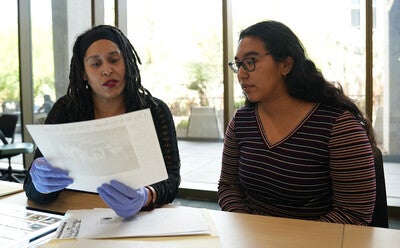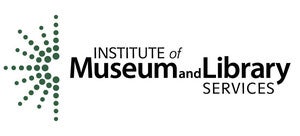The ASU Library is embarking on a three-year project to nurture the next generation of community archivists currently attending community and Tribal colleges. With support from the Institute of Museum and Library Services Laura Bush 21st Century Librarian Program, a $534,975 grant will establish the Community Archivist Fellowship Program for Black, Indigenous, and people of color (BIPOC).
New innovative program to advance equity and inclusion in libraries

The program, titled “Centering BIPOC Memory Keepers and Advancing Equity and Inclusion,” will support the development of a diverse workforce in libraries and archives by introducing underserved and underrepresented students to archival theory at the community college and tribal college level.
Nancy Godoy, Director of the Community-Driven Archives Initiative (CDA) said, “This grant is an investment in our future and BIPOC communities. It will allow us to lay the foundation for an equitable and just pathway to education.”
Over the next three years, this innovative pre-professional program will:
- Empower BIPOC fellows by addressing gaps and barriers to success in higher education and within the Library and Information Science (LIS) field;
- Develop a framework that creates safe spaces for students and supports student success, retention, and a career pathway;
- Introduce historically marginalized students to Community-Driven Archives theory and practices by centering their lived experiences and community knowledge.
This IMLS project will be led by Godoy (Director of the Community-Driven Archives Initiative and Associate Archivist of Chicano/a Research Collection), Alexander Soto (Director of the Labriola National American Indian Data Center), and Jessica Salow (Assistant Archivist of Black Collections).
“This outreach to historically ignored communities who may not even know that librarianship and archives is a career path that has been a sorely missed opportunity within our field to address our diversity problem,” said Salow. “I had no idea I could become an archivist until I went to college at ASU and interacted with the librarians and archivists of the ASU Library. If I had known earlier in my life that librarianship and archives was a field I could enter, I may have made different career choices. It is an honor to have the opportunity to engage with students who could potentially change the face of this field and provide the much-needed diversity we desperately need within this profession.”
For the next year, CDA will establish the team, develop a curriculum, and recruit the first cohort of fellows from community colleges and tribal colleges in Arizona, focusing on Tohono O’odham Community College and the Maricopa County area.

Soto said, “This grant will allow us to show what Indigenous memory keeping is within a library setting. For Indigenous youth, I feel this is important since we are always told we must carry on the traditions and rarely consider archiving as a means for cultural reclamation. We often associated it with Western knowledge management that marginalizes and dehumanizes our stories and community. Only until I met Nancy Godoy, did I see how community-driven archives provide a means for Indigenous peoples to steward their knowledge from their worldview. With this grant, we will demystify and decolonize the archival profession for Native college students. Starting with regional partners, like Tohono O’odham Community College, we hope to build a pathway program that highlights the role that Indigenous librarians and archivists play in maintaining our culture and language.”
Starting in 2017 with the establishment of the CDA and support from The Andrew W. Mellon Foundation, the team created a culture that supports the health and well-being of marginalized communities, students, and archivists. At ASU, CDA was recognized by President Crow in the Listen, Invest, Facilitate, Teach (LIFT) Initiative, which aims to accelerate meaningful change at ASU and contribute to a national agenda for social justice. In 2022, CDA was recognized by the Society of American Archivists with the Archival Innovator Award.
Building on this success, CDA and the Labriola Center will continue to create innovative ways for BIPOC communities to be memory keepers. For more information about the program, contact Nancy Godoy.
This project is made possible in part by the Institute of Museum and Library Services.
